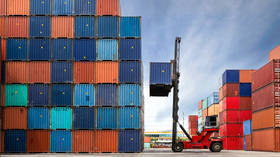Russia circumvents Western product deficit

The volume of parallel imports to Russia may reach about $16 billion by the end of the year, Russia’s Deputy Prime Minister and Minister for Industry and Trade Denis Manturov said on Monday.
“We can say that somewhere around $16 billion will be the result of parallel imports mechanism by the end of this year,” he told the press, as cited by Prime news outlet, adding that over the past three months the figure has already reached about $6 billion.
Manturov noted that parallel imports are a “living mechanism” in Russia, with the list of products covered by the scheme being constantly adjusted in response to the decisions of foreign companies to continue supplying Russia with their goods or to quit the country’s market.
Parallel imports, sometimes called ‘gray’ imports, refer to the practice when a non-counterfeit product is imported without the permission of the intellectual property owner, via alternative supply channels. Earlier this year, in response to Western sanctions which prompted many foreign companies to suspend their operations – and deliveries – to Russia, Moscow made parallel imports legal to meet the residents’ demand for foreign goods.
However, Manturov said last month that Moscow may cancel parallel imports for products which Russian producers are able to manufacture on their own, as Russia is actively promoting import substitution, aiming to make the economy more independent, especially in view of sanctions tightening.
Manturov noted that Moscow will follow a “balanced” approach when deciding what goods to include on the permitted list for parallel imports so they do not “hurt local companies.”
For more stories on economy & finance visit RT's business section












